No-BS answers to your most-googled menopause questions
Telling it to you straight

It’s a stage of life that affects millions of Aussie women. So we asked leading health experts for their advice on everything from MIA libido to the magic of muscle-building.
Once upon a time, the word ‘menopause’ conjured images of frazzled women sweltering through a hot flush, and that was pretty much it. But now, a seismic shift is firmly underway. One where the nuance and variety in how women experience this time – referring to the end of our periods and reproductive stage of life – is in the spotlight like never before.
Last year, a Senate committee released its hotly anticipated report on perimenopause and menopause in Australia. Drawing on the stories of nearly 300 women, as well as intel from experts and leading bodies, the landmark paper made powerful (and very welcome) recommendations – from more research and education for healthcare pros, to greater support for meno warriors in the workplace.
This rallying call for change is echoing beyond politics, too. A-listers including Naomi Watts, Gillian Anderson and Halle Berry have spoken candidly about their menopause experience and how crucial it is to demystify it. (Berry shouted, “I’m in menopause!” in a speech last year on Capitol Hill – what a legend.)
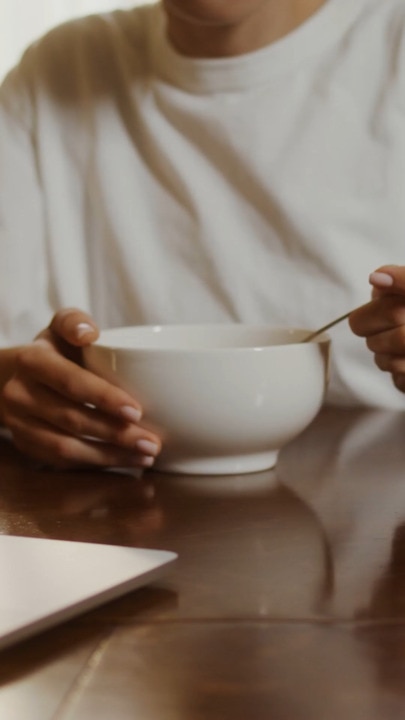
Because, as the saying goes, knowledge really is power. “Women don’t often realise they’re [menopausal] until they’re quite far into it,” agrees Dr Lauren Goldschmidt, a GP on the board of the Australasian Menopause Society (AMS). “Whereas if you know what to look out for, then hopefully you’ll know there’s help out there and good treatments if you need them.”
With that in mind this World Menopause Month, we’ve enlisted top experts – and women in the thick of it – to shed light on some of the biggest things to know about navigating your big M years. From the benefit of weight training, to the reality of night sweats and MIA libido, it’s time to upscale your knowledge on this subject, because forewarned really is forearmed. Ready? Then let’s begin.
Q: What is perimenopause and how is it different from menopause?
‘Perimenopause’ and ‘menopause’ are often used interchangeably, but the first thing to know? They’re actually slightly different. Let’s break it down. Perimenopause is that time leading up to your last period and, while it lasts for between four and six years on average, it can run for longer or less. That’s when you may encounter the joy that is irregular periods and a line-up of not-so-fun potential symptoms, from hot flushes and joint pain to brain fog. Once you’ve hit the one-year mark without a period, then boom – you’re in menopause and enter your postmenopausal era.

“The way we broadly look at it is that anything over 45 would be a very typical time for perimenopause,” explains Dr Goldschmidt, adding that she may run a few tests on somebody younger to rule out other issues. Everybody’s experience is different, so it’s then about working out best next steps – whether you’re after night-sweat saviours, focus finders or help with haywire bleeds. Her top tip: keep a symptom diary to show your doctor, so you’re not racking your brain during appointments. “There’s no ‘right’ or ‘wrong’ or set number you need to have. If something’s becoming difficult or changed, then it’s always worth a chat.”
So, is the ride smoother post menopause? “It varies, but symptoms can go on for about five years after your last period on average,” adds Dr Goldschmidt. “By then, they tend to settle down and the body has adapted to being in that postmenopause state.”
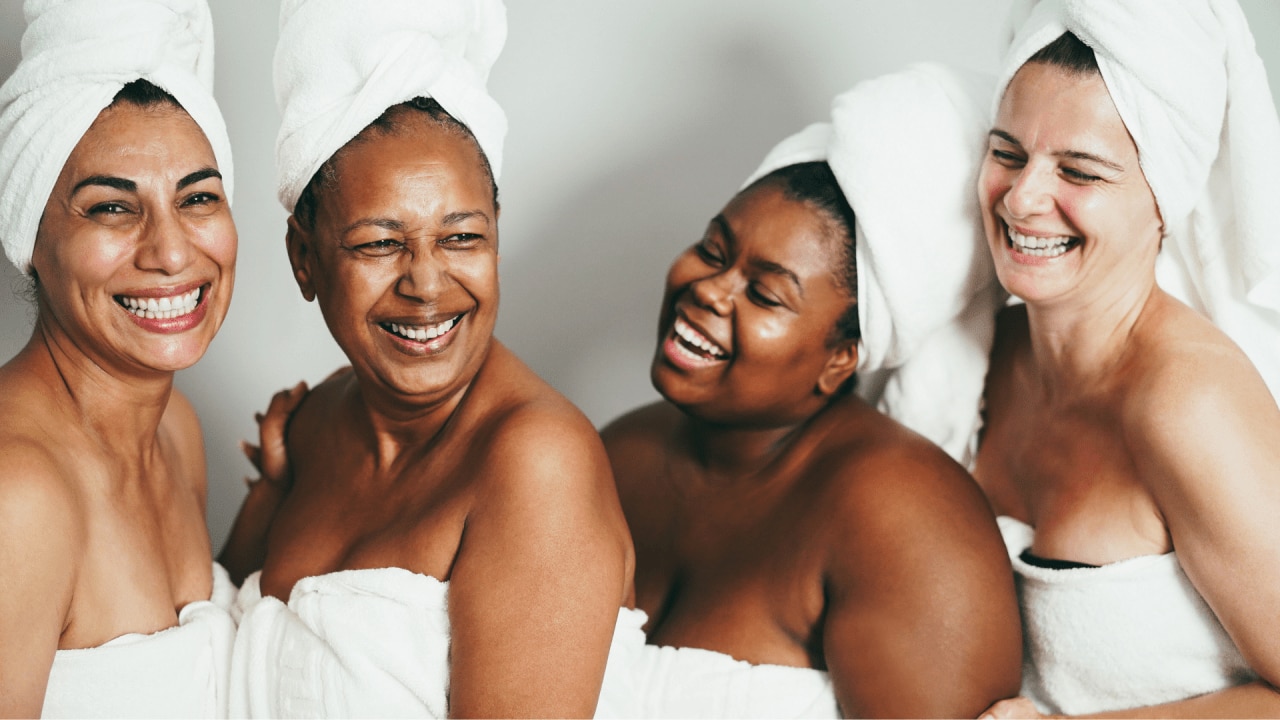
Q: What causes hot flushes during menopause and how can I ease them?
Is it just us, or is it getting a touch toasty? Around 80 per cent of women are struck by menopausal hot flushes and night sweats. The specific mechanism isn’t fully understood, but it may be thanks to the influence of lower oestrogen on how our bodies regulate temperature. “For some women, it’s an intense sweat and heat that’s very visible,” says Dr Goldschmidt. “While for others, you might not see it, but they’re burning.”
At one point during peri, Jodi Harvey was feeling the heat at least 10 times a day. “My body felt like it was on fire. I would be in business meetings, a flush would hit and I’d be soaked,” recalls the 53-year-old founder of midlife community, 50 So What, who is now in postmenopause. For Sarah Green, 51 and currently in perimenopause, next-level night sweats emerged in her early 40s. “It was like I’d sleepwalked into the shower,” the founder of supplement brand, The Menopause Co., tells Body+Soul. “I’d wake up cold and soaking wet, with my nightwear and bedding needing to be stripped. Sometimes this happened several times a night for weeks.”
As for what you can do about hot flushes? Remedies include menopausal hormone therapy (MHT) and cognitive behaviour therapy (CBT) as well as “practical things, like wearing [breathable] cotton and layers, using a fan and avoiding triggers, such as alcohol,” says Dr Goldschmidt. There are medications, too, she adds, so absolutely touch base with your GP or specialist for advice.
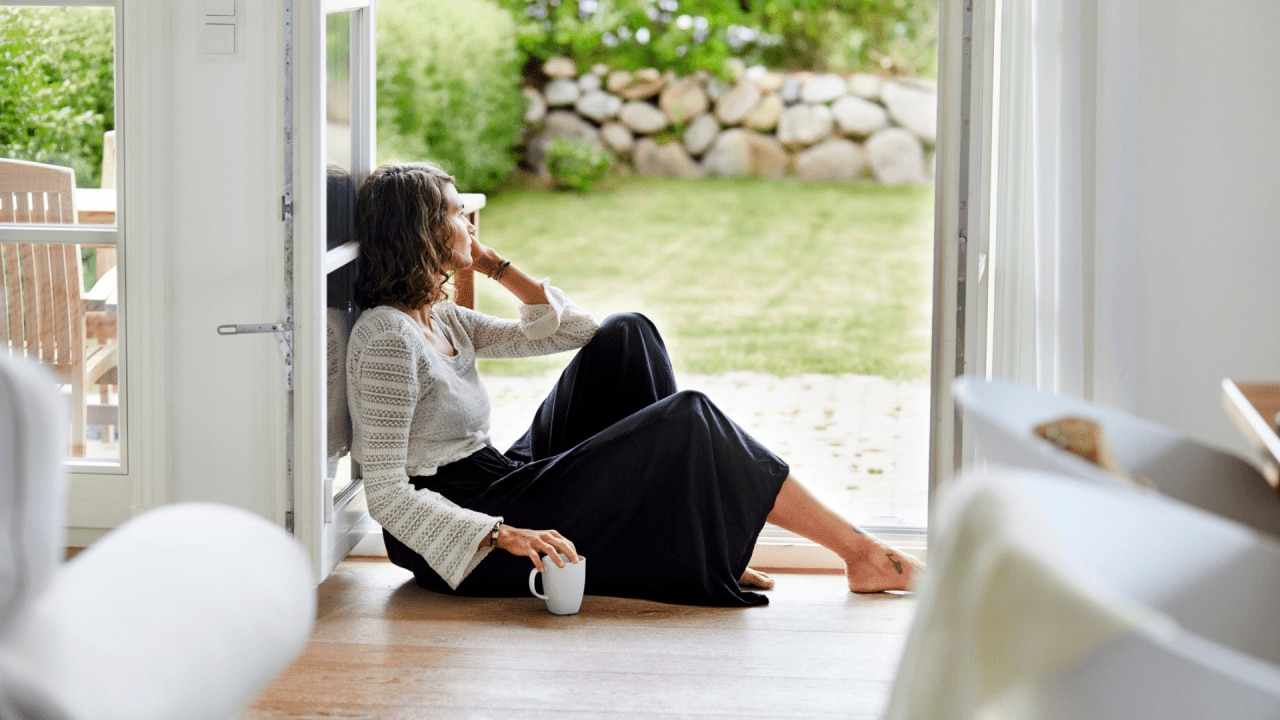
Q: Can lifting weights help with menopause?
Uplifting news (quite literally): getting your strong on can deliver major meno gains. Not only does strength training support bone health and muscle strength (both are put through the wringer by declining oestrogen levels), but two or three resistance workouts a week may help to reduce flushes and night sweats in postmenopausal women – that’s according to a study by Sweden’s Linköping University. How’s that for incentive to dust off the dumbbells?
“Research shows that lifting heavy weights in the lower repetition ranges is key to increasing muscle strength, tone and power in the perimenopausal years and beyond,” says Paula Hindle, a holistic physiotherapist, health coach and co-founder of wellbeing platform, Unlock Potential. “Strength workouts also enhance mood, counteract stress, promote sleep and improve balance.” Laying the groundwork is powerful, too. “If we can gain good muscle mass and bone density in our younger years, we set ourselves up to age strong,” confirms Hindle.
“It’s never too late to start, though.” Check in with a coach, exercise physiologist or women’s health physio for guidance, she tips.
Also, consider adding an ocean dip to your fitness regimen. Fresh research from the University College London found menopausal women who regularly swam in cold water reported improvements in mood, flushes and more. Now that’s some genuinely refreshing news.
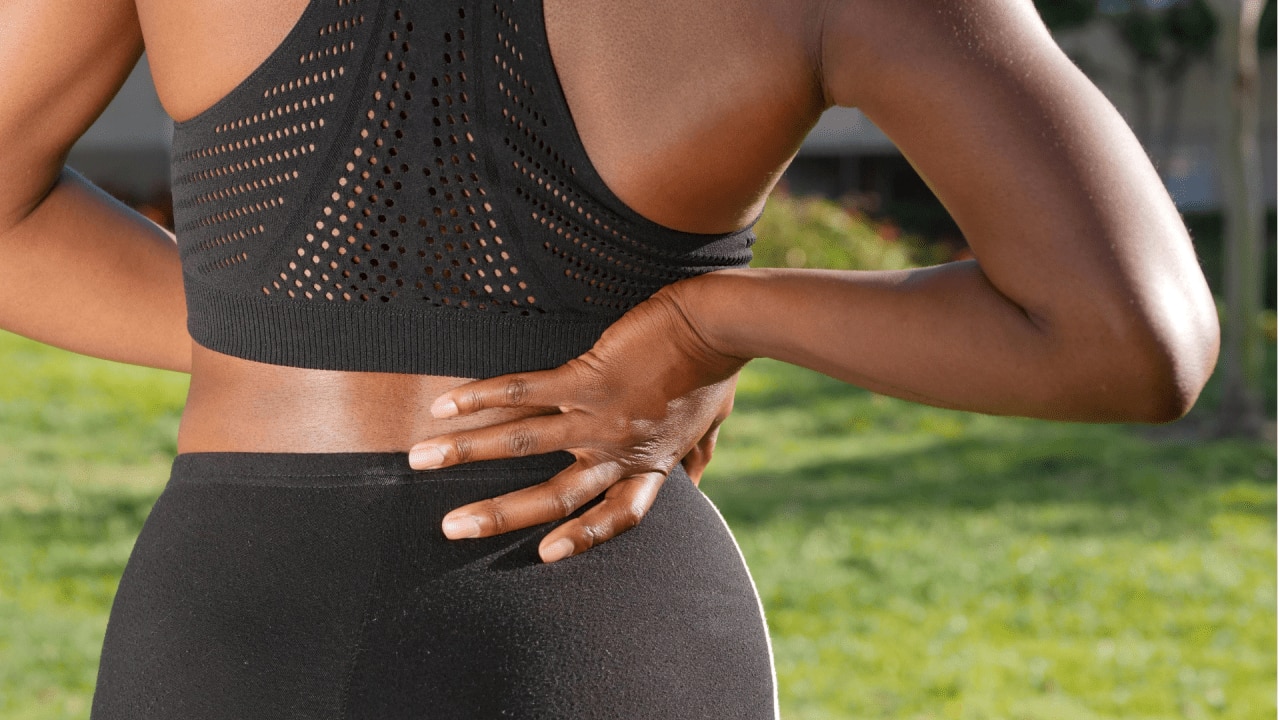
Q: Can MHT help with menopause symptoms?
In case you’re not acquainted with MHT, here’s a brief refresher. Formerly known as hormone replacement therapy (HRT), this medical approach involves replacing oestrogen, progesterone and sometimes testosterone to help manage menopausal symptoms. Despite being around for decades, MHT is now more personalised than ever.
“The older types were one-size-fits-all; they’d come in combined tablets and that was it,” says Dr Fatima Khan, a menopause specialist who consults out of Epworth Hospital in Melbourne. “Now, the progesterone comes on its own and oestrogen can come in a tablet, gel, spray or patch, and in different dosages. So, it’s a journey where we [adjust] according to somebody’s symptoms, as well as how their body is absorbing and processing it.”
That’s why check-ins with your GP are crucial – Dr Khan typically sees new patients after three months, before moving to six-monthly reviews – as well as weighing up benefits and risks with your doctor to work out what’s best for you.
Dr Khan points out that while MHT can be a game-changer for some women, it’s just one potential part of your arsenal. This rings true for Green. “[MHT] has helped a lot, but it’s not a magic fix,” she says. “I still experience symptoms and have to adjust the dose to find the right balance as my hormones continue to shift. For me, a holistic approach has worked best.

Q: Does your diet help with menopause?
In a word: yes. “There are so many different hormonal changes impacting your body. What you eat can support you in managing symptoms,” says Chloe McLeod, accredited practising dietitian and founder of Verde Nutrition Co. “It’s about making great nutrition choices to help you navigate and thrive in this time of your life.”
So, what’s on the meno menu? McLeod advocates a Mediterranean-style approach, full of plant diversity, healthy fats, antioxidants and quality protein to support muscle growth and recovery – perfect for those strength workouts. A 2020 review by Bond University found the Med diet may be a winner for cardiovascular health, bone density and mental wellbeing during menopause, while potentially helping to combat flushes.
“Increasing your omega-3 fatty acid intake – from fish, nuts and seeds or a supplement – can help with some symptoms,” says McLeod, with a caveat that it’s best to seek expert guidance before taking new supps. “Research even suggests tart cherry juice can be useful for managing hot flushes.”
Oh, and we hate to be a buzzkill, but just be mindful of that third spicy marg: alcohol can exacerbate brain fog, night sweats, heart palpitations and co. A no-groni, it is then.

Q: How long does the menopause weight gain last?
Are your favourite jeans not quite fitting like they used to? A few culprits can spark a shift in body composition during this stage of life, from heightened stress and lower muscle mass, to sleep struggles. And yep, you guessed it, changing hormones enter the chat. “There can be a shift in fat distribution to the tummy, which is driven by the decline in oestrogen,” explains
Dr Khan, noting that this pattern tends to continue postmenopause.
That’s why, as with any weight management journey, it’s about prioritising healthy changes you can stick with for decades, rather than just a matter of weeks or months. Think: tackling stress, optimising Zs and our old mate strength training – which Hindle points out is great for maintaining muscle mass and in turn a higher metabolism – as well as that foodie focus on protein, which helps to manage appetite.
“Be consistent with your nutrition,” recommends McLeod. “And know that it’s going to take time, perhaps longer than in your 20s or 30s. For most people, it can take around six to eight weeks before they really see any noticeable impact from the changes they’ve made.

Q: How does menopause affect your mental health?
Combine a hormonal roller-coaster with life, well, life-ing, and it’s no wonder perimenopause can take a toll on mental well-being. For Harvey, this manifested as mood swings, lower confidence, anxiety “and just a general feeling of being overwhelmed. My body didn’t feel like it was mine. I felt like I was falling apart.”
As Dr Khan shares, our sex hormones are “important for every organ in the body, including the brain. Oestrogen directly stimulates and communicates with serotonin, which is your ‘happy’ hormone. This in turn correlates with melatonin [production] as well as the neurotransmitter dopamine, which is crucial to motivation. So when hormones are low or fluctuating, your mood and sleep can all be affected.” The solution? Dr Khan encourages self-care tools, from social connection and time in nature to expert support.
Green has faced her own peri-driven mental health challenges and checks back in with her ‘wellness toolkit’ whenever she feels “out of balance”. “It’s about focusing on self-care, learning to put myself first and knowing when to say no,” she says. “I keep a pen and paper by the bed to write things down if my mind is racing, and I carve out time for me, whether that’s going for a swim, sauna or walk. It can feel isolating, but know you’re not alone and there are support networks available.”
Harvey is a huge fan of walking, and can often be found barefoot – ‘grounding’ – in the sand or grass. She lifts weights, feels the benefits of MHT and swears by the power of sharing with other women. “Creating a community has helped me cope,” she says. “We are stronger together – I feel like me again.” Looking for your tribe? Apps like Peanut and Balance offer digi spaces for women to connect in peri and beyond. As the menopause revolution continues apace around the world, we’ll catch you there.
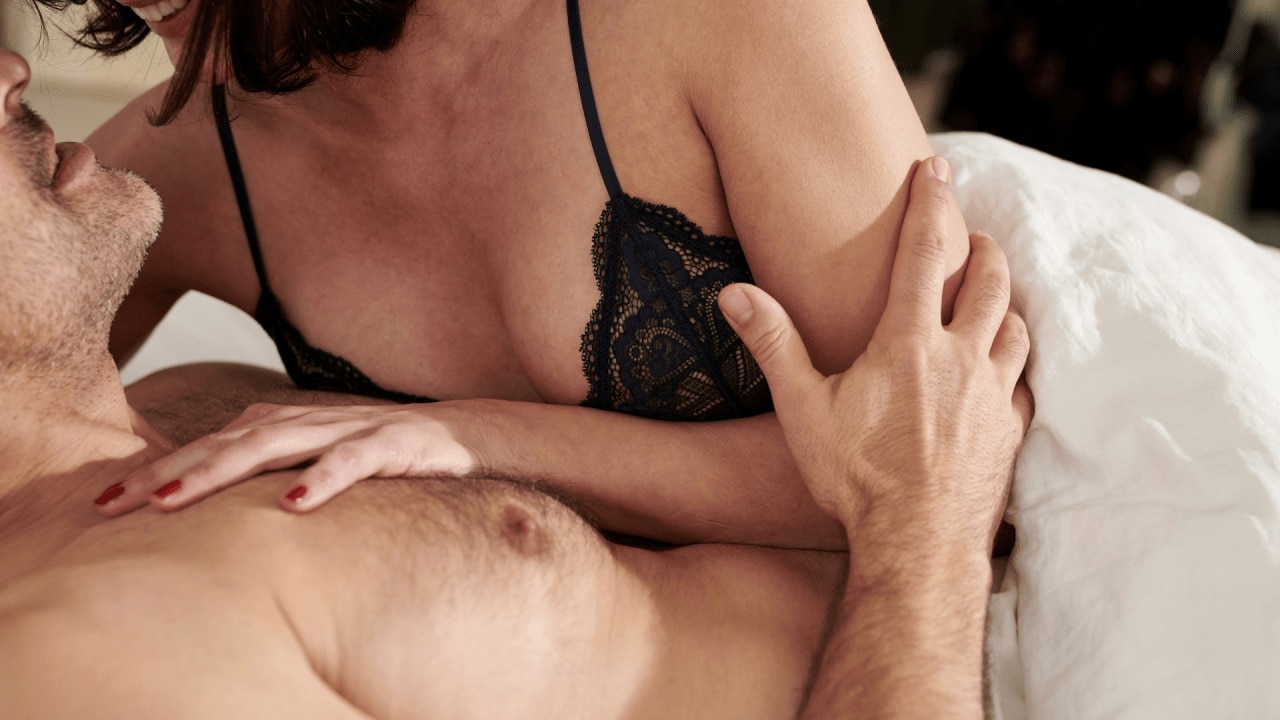
Q: Does menopause affect libido?
If your sex drive has ghosted you lately, you’re not alone: 40 to 50 per cent of women are thought to experience low libido during this phase of life. So, what gives? “Libido is multifactorial,” explains Dr Khan, sharing that everything from vaginal dryness (thanks, lower oestrogen), joint pain and fatigue can trigger a desire disappearing act.
Harvey is open about her sex drive taking “a very long gap year or two” and hopes to normalise the topic. “So many women experience it, which affects our confidence and, for many, their relationships,” she says. “The best thing to do is talk about it – to your
GP, specialist, a friend and especially to your partner. It’s nothing to be embarrassed about, but I acknowledge it can be a hard conversation.”
When it comes to strategies, Dr Khan recommends chatting to your doctor about any meds you’re taking (since some can dampen libido) as well as lubricant, vaginal oestrogen or another way to soothe dryness or pain. Testosterone therapy is also an option for some.
And look at ways to cultivate connection beyond the bedroom, too. “Sit together, put your arms around each other, go for a walk,”
says Dr Khan. “It’s about sharing experiences and having those non-sexual intimacy touchpoints.” Check out the Paired app for expert-led, connection-revving ideas.

Who can help with menopause?
In short: a whole squad of experts. Here are just a few…
Your GP
A good first port of call for guidance, who can refer you to other experts if needed. Visit menopause.org.au for a directory of doctors with a special interest in midlife.
Endocrinologists
These specialists treat and manage conditions related to hormone issues. FYI, you’ll need a GP referral and appointment wait times can vary.
Dietitians
Not only can they recommend blood tests to check cholesterol and iron – both can be impacted by peri – they’ll serve up personalised strategies for optimising your plate.
Physiotherapists
Whether you’re wrangling with joint pain or pelvic floor probs, these skilled practitioners use physical techniques to tackle various meno-related issues.
Naturopaths
An alternative medicine practitioner, who can advise on things like lifestyle, homeopathy and herbal remedies.
Psychologists
Look to the likes of counsellors and psychologists for support with mental wellbeing. For free support and resources, visit beyondblue.org.au or call a counsellor on 1300 22 4636.
More Coverage
Originally published as No-BS answers to your most-googled menopause questions








